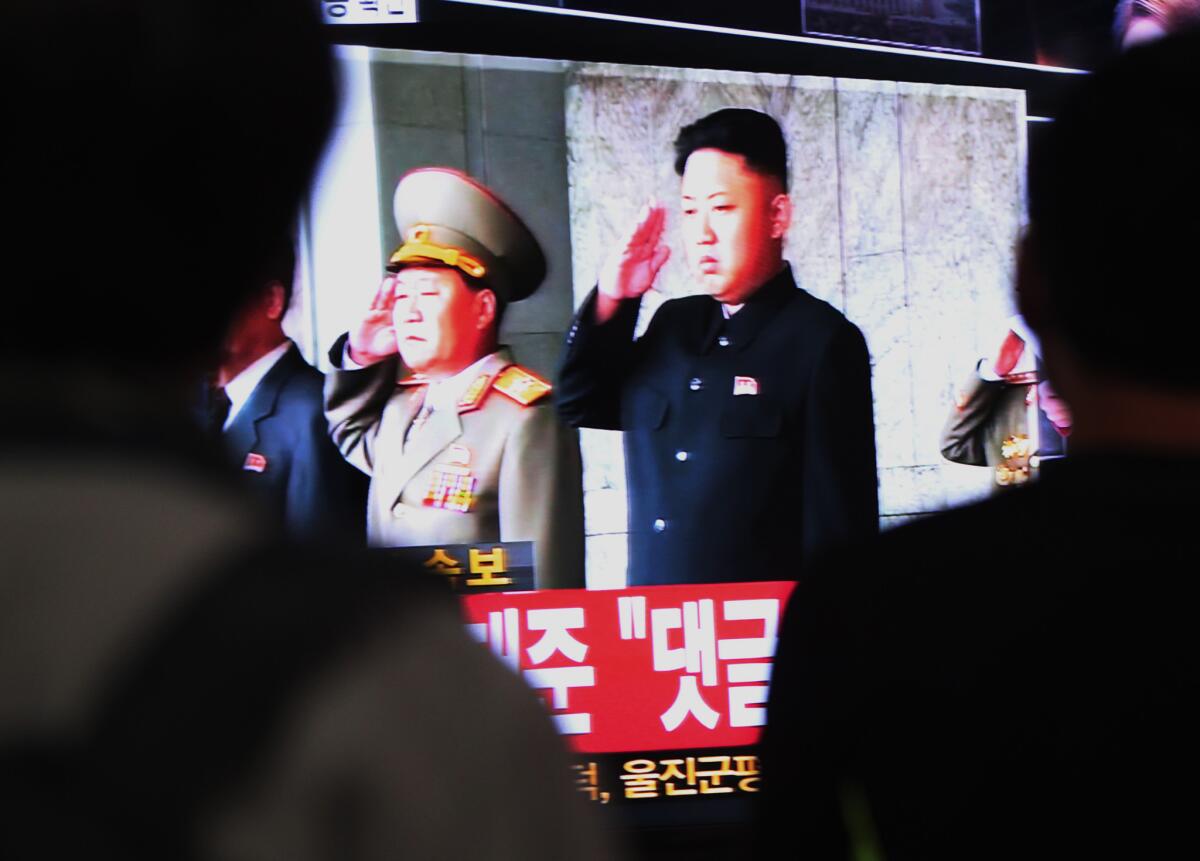Engaging with North Korea

- Share via
Pyongyang, North Korea — I became British ambassador to North Korea a year ago, and since then I have seen firsthand the nature of the regime. Its human rights record is appalling; it continues to develop its nuclear and ballistic missile programs and to sell its military know-how to other states. And yet, I’ve also seen that it is possible to engage with the regime constructively.
The United Kingdom is one of just a handful of Western countries that have diplomatic relations with North Korea (known formally as the Democratic People’s Republic of Korea) and that maintain embassies in Pyongyang. We are there because we support international efforts to encourage North Korea to engage positively with the outside world and to stop its provocative and repressive behavior. There is a better course for the government if it wishes to take it.
Make no mistake, North Korea continues to aggravate the international community in cycles of threat, provocation and conciliation that have become a familiar, even expected, theme.
Last year, the regime launched two satellites using ballistic missile technology banned under United Nations Security Council resolutions. Then, as if to underscore its intention to provoke the international community, it ushered in 2013 by testing a nuclear device for the third time.
This spring, North Korea issued aggressive threats against South Korea and the U.S., closed the inter-Korean Kaesong industrial zone and unilaterally declared invalid the armistice agreement that has kept the peace on the Korean peninsula for more than 60 years. The international community responded to Pyongyang’s actions with a tightening of sanctions and unequivocal condemnation.
At the height of the tensions in April, all embassies and other international organizations in the capital were told that in the event of all-out war, the North Korean government could not guarantee our safety. We were offered a stark choice: be taken to unnamed safe havens or be evacuated. Not a single embassy evacuated its staff in the face of this intimidation. Britain and other European Union member states reminded Pyongyang not only of its obligation to protect foreign diplomats but also of its greater responsibilities as a U.N. member state.
Our efforts to engage the North Korean regime are focused on creating links between officials here and others in the global system, and supporting the most vulnerable within this society.
We are negotiating an extension of a highly successful English-language teacher training program we sponsor, which operates in six Pyongyang universities and one middle school. Through the British government’s Chevening Scholarships, we recently sent two postgraduate students from North Korea to study at Cambridge University. We are also funding smaller-scale projects supporting the elderly, the disabled and nursing mothers.
U.N. agencies such as the World Food Program, UNICEF, the World Health Organization and half a dozen international civil society organizations with operations in North Korea work bravely with limited funds to improve the lives of ordinary people through better healthcare, sanitation, education, disability rights and agriculture — crucial in the face of malnutrition and deprivation outside the capital.
They deserve our support, as do the outside organizations working to end North Korea’s human rights abuses, in which freedom of expression, movement, religion and thought are severely curtailed. Anyone who criticizes the government or party is punished severely, and knowledge of the outside world — where it exists — is extremely minimal or distorted.
“Open societies choose democracy and freedom at home, engagement and responsibility abroad,” British Deputy Prime Minister Nick Clegg told the U.N. General Assembly last month. “Closed societies suppress the liberty of their citizens, draw a veil over their actions and withdraw from our shared international life.”
Many Western nations see the closed door of North Korea and are discouraged. It is of some comfort and of great importance to remember that though the door is closed, it is not yet locked.
I wanted my job because I believe active and energetic diplomacy, when intelligently and responsibly applied and backed up by engagement, can make a difference. We must stand up for the values of open societies not only for the sake of our security but also for the hope of better things to come for the North Korean people and a lasting peace on the Korean peninsula.
Mike Gifford is the British ambassador to the Democratic People’s Republic of Korea.
More to Read
A cure for the common opinion
Get thought-provoking perspectives with our weekly newsletter.
You may occasionally receive promotional content from the Los Angeles Times.










